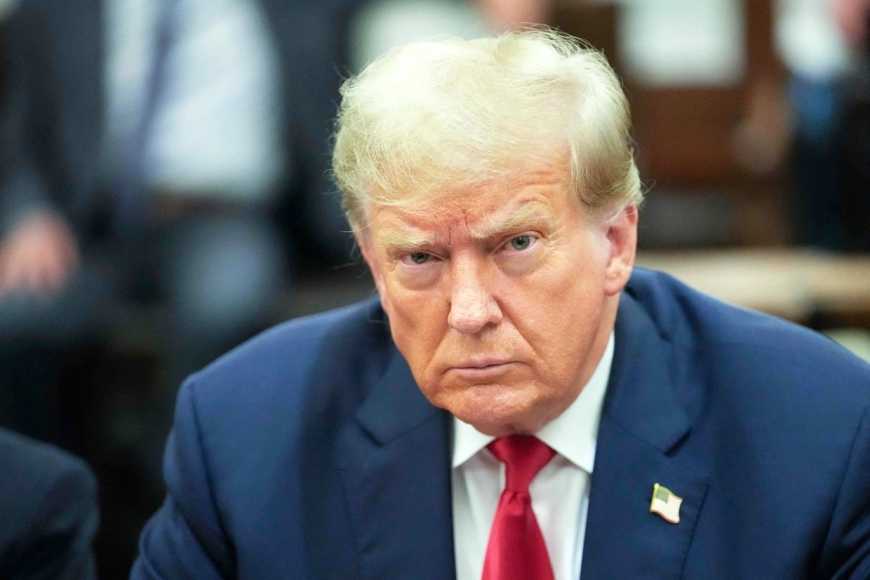Trump Challenges Civil Fraud Ruling: Appeals $354 Million Judgment in New York

Former President Donald Trump has filed an appeal against a substantial civil fraud judgment that was handed down earlier this year by New York State Judge Arthur Engoron. The appeal, submitted on Monday to the New York Supreme Court Appellate Division, contests a February ruling which found Trump and his company, the Trump Organization, liable for extensive business fraud.
The 95-page appeal strongly criticizes the state Attorney General Letitia James, alleging that her actions constitute an "unauthorized, unprecedented power-grab." The legal team for Trump asserts that numerous loans, which were integral to the fraud case, should not have been considered. They argue these transactions were complex, successful, and fully satisfied all parties involved without affecting the public interest.
The judgment initially imposed a penalty of $464 million, but as of late February, it had been reduced to $354 million, with ongoing interest accumulating. In addition to the financial penalty, Judge Engoron prohibited Trump from managing any New York-based company for three years. Furthermore, Trump's sons, Donald Jr. and Eric, are barred from running any New York business for a period of two years.
The case stemmed from a lawsuit filed by James in 2022, accusing Trump and his organization of falsifying financial statements to inflate asset values. One notable instance involved Trump allegedly overstating the value of his Trump Tower triplex by threefold. Trump's legal team contends that these transactions were private and that all associated loans were repaid in full and on time.
The appeal also challenges the application of the statute of limitations. Trump's attorneys argue that seven out of ten loan transactions should have been dismissed from the case due to their dates falling outside the allowable period for legal claims. They assert that correcting the statute of limitations would significantly reduce the judgment by approximately $350.9 million.
Christopher Kise, one of Trump's attorneys, criticized the trial court’s decisions as "legally bereft" and accused the court of imposing "draconian, unlawful, and unconstitutional penalties." Kise contended that the trial was influenced by political motivations rather than legal merits.
Attorney General James, who has championed the case as a significant victory for public accountability, has maintained that Trump engaged in deceptive practices that misled banks and insurance companies. She asserted that the ruling was a triumph for every American who abides by legal standards and emphasized her commitment to safeguarding the integrity of the financial system.
Despite some legal successes related to presidential immunity, Trump's appeal did not reference a recent Supreme Court decision on this matter. The appeal process will now proceed through the appellate courts, potentially shaping the future of Trump's legal battles and the broader discourse on business ethics and accountability.













































